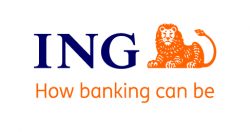Supporting third party payment initiation on the NPP.
The Treasurer yesterday announced an Inquiry into Future Directions for the Consumer Data Right which will be led by Scott Farrell, which includes looking into expanding the CDR to include ‘write’ access and linkages and interoperability with existing infrastructure, including the New Payments Platform.
NPP Australia is developing capability that will enable customers to pre-authorise accredited third parties to initiate payments from their bank accounts via the NPP. Set out in the inaugural NPP roadmap, this is the functionality most frequently asked for by fintechs and the market, and often referred to as ‘write’ access under Open Banking.
Central to this capability is the account holder’s authorisation (or consent) for payments to be initiated from their bank account which is recorded in a digital payment arrangement or a ‘mandate’ that enables future payments to be processed by the account holder’s bank. This functionality increases the visibility and control that account holders have over these various payment arrangements, resolving significant pain points with these kinds of payment arrangements today.
This core foundational capability will enable a range of use cases, like recurring or subscription type payments, ecommerce, and ‘on behalf of’ services such as a corporate using a cloud accounting software provider to do their payroll run.
Having a standardised and consistent approach to this payment initiation capability will maximise its utility and provide a broad, scalable and secure approach to third party payment initiation, with the account holder’s specific authorisation.
The processes by which account holders can create, manage and maintain authorised payment mandates with their financial institution will be designed as far as possible to align with those developed for data sharing under the initial implementation of the CDR.
This capability will facilitate secure and effective ‘write’ access – as seen in other markets such as in Europe – within the NPP ecosystem, enabling third parties to initiate real-time payments with the customer’s authorisation via one access point, from any one of the 66 million (and growing) customer accounts that are NPP enabled.
All NPP participating financial institutions are required to implement technical upgrades and processes to support this capability by December 2021. It is anticipated that financial institutions will begin to roll out services utilising this capability in early 2022.
| Background: Comments re Payment Initiation and Write Access from the December 2017 Open Banking Review Some submissions claim that the biggest reform to empower customers and improve bank competition is to enable customers to provide third party write access. Proponents of enabling write access point to the benefits of a greater range of services that people can use to better manage their finances or make payments with less hassle. There is some demand already for write access services that can be seen by the growth of screenscraper businesses that offer write access services to customers. Unlike the current conditions under which screenscrapers operate, where there are untested regulatory protections for their customers, creating write access would provide a regulatory framework that entrenches operating requirements and customer protections. Other submissions have highlighted risks of implementing write access. These submissions argue that write access creates major security risks for customers. Write access could give malicious actors a greater incentive to make cyber-attacks because the party with write access would be a more lucrative target. If write access was created before [read access] was fully bedded down, that may put its success at risk. Further, while write access has significant benefits, it may take some time for customers to feel comfortable with third parties acting on their behalf. In addition, the New Payment Platform (or NPP) — scheduled to be available to consumers by February 2018 — will enable real time person-to-person payments in addition to more data being able to be included in payment information. Although write access is beyond the Terms of Reference of this Review, for these reasons it would be premature to consider implementing it at this stage. An assessment of the success of the ‘read access’ Open Banking reforms should be undertaken before any consideration of moving to write access reforms is made. Pages 108-109 of Review into Open Banking December 2017 |


